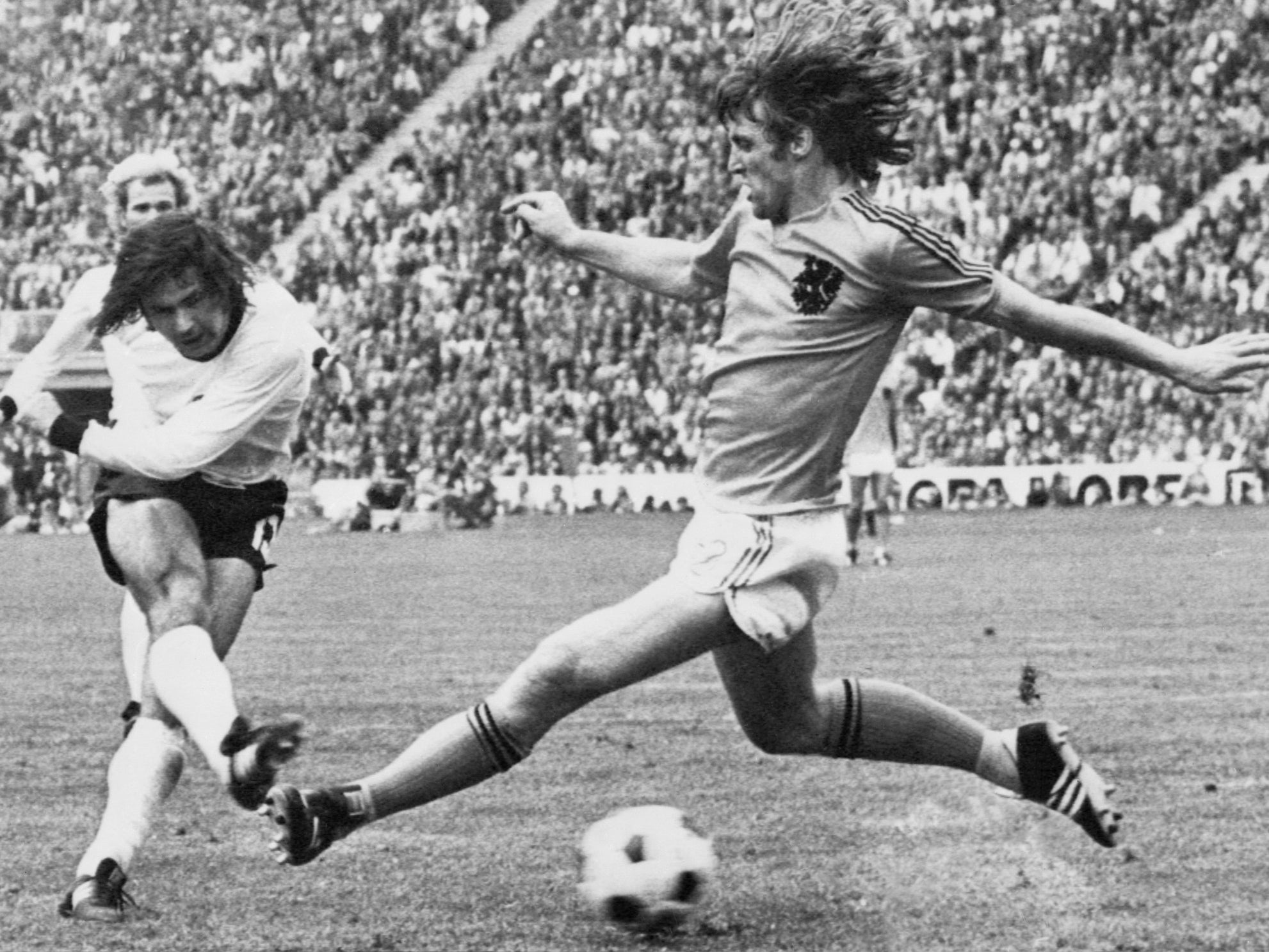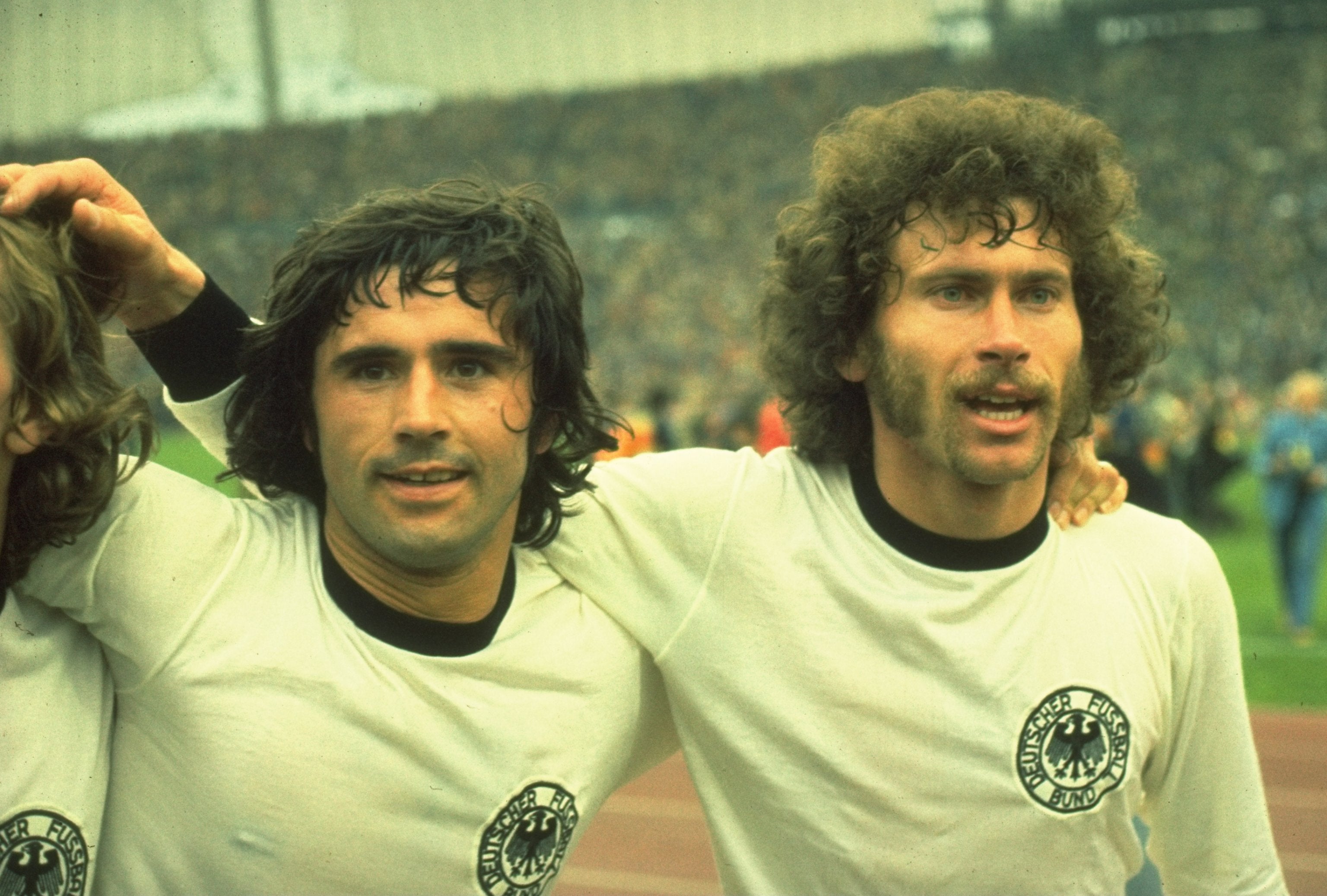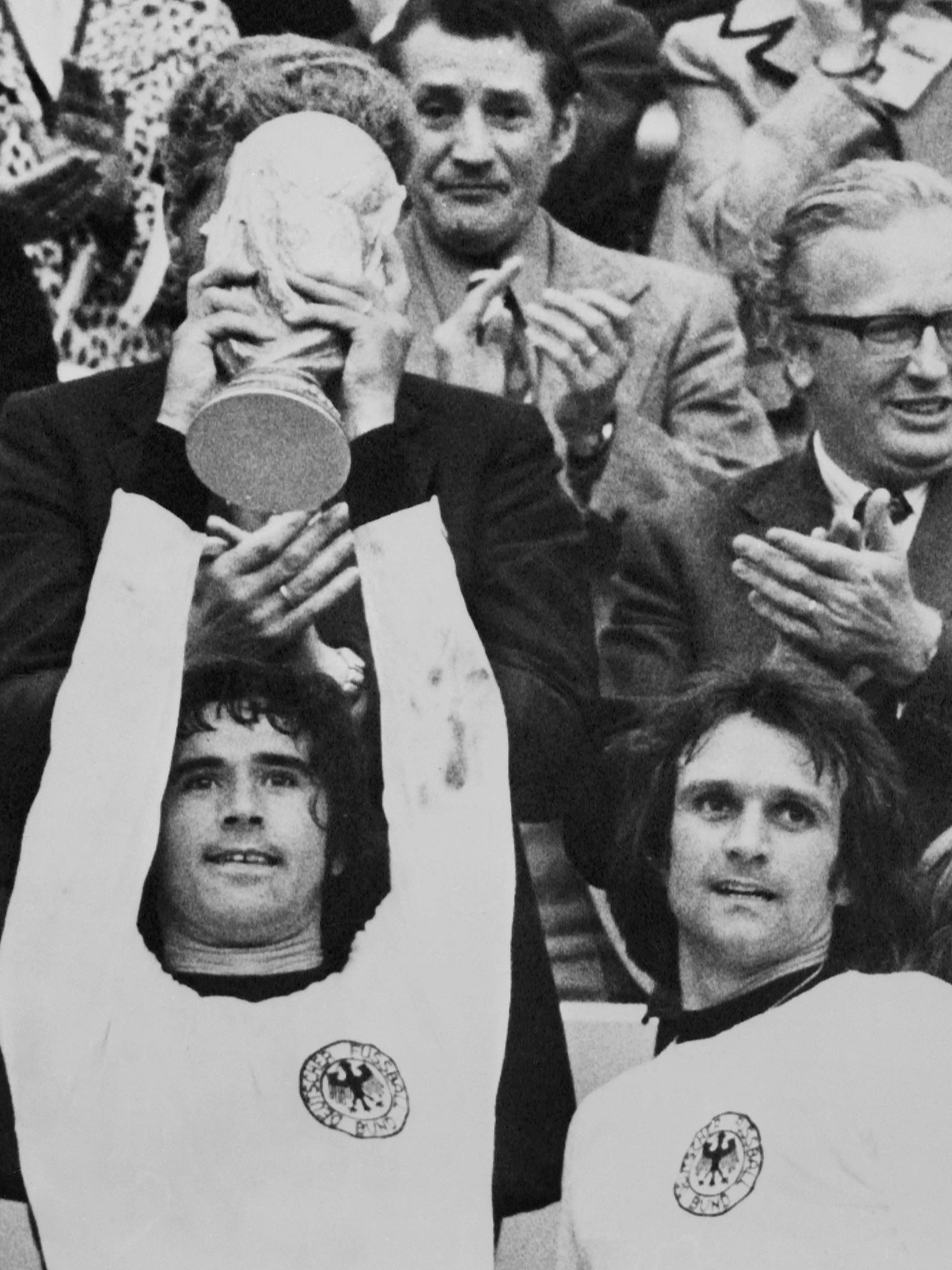Gerd Muller: Goal machine who fired West Germany to World Cup glory
‘Der Bomber’ racked up an astonishing number of goals for club and country, lifting the European Cup three times with Bayern Munich and scoring the winner in the 1974 World Cup final

Once voted the finest footballer in the history of the German Bundesliga, Gerd Muller, who has died aged 75, stands unchallenged as one of the greatest goal machines Europe has produced. Though small and squat, as powerful in the air as he was with the ball at his feet, his immense strength and incredible pace proved deadly. Relishing his role as marksman-in-chief for both club and country, “Der Bomber” as this battering ram of a centre forward was dubbed, helped Bayern Munich to lift the European Cup three times, while also claiming a quartet of Bundesliga titles. His clinical finishing brought West Germany victory in the 1972 European Championships and, two years later, the World Cup. He remains the only player to have scored in both World Cup and European finals.
The youngest of five children, his father a labourer, Gerhard Muller grew up in the Bavarian town of Nordlingen, at that time under the control of the Allied forces. After being forced to leave school at the age of 14 following the sudden death of his father, he then began an apprenticeship as a weaver. Inspired by Germany’s unexpected 3-2 win over the mighty Magyars in the 1954 World Cup Final, he subsequently became involved in junior soccer. Not for the last time he initially failed to impress his coaches. However, never doubting his own ability, he persevered and a flurry of goals for his local team during the 1963 season soon alerted the talent scouts, particularly those from Bayern Munich.

Transferred in 1964, arriving at the club at the same time were a further group of talented youngsters that included Sepp Maier and Franz Beckenbauer. Despite once again not impressing his coach, 33 goals in his first full season helped Bayern clinch promotion to the top tier of the newly established Bundesliga. Contributing a further 28 goals in the 1966-7 season, with his team coming third in the league and winning the cup, Muller was voted Player of the Year. This qualified Bayern for the 1967 Cup Winners Cup competition in which they defeated Glasgow Rangers in the final. Two years later they became the first to secure the German league and cup double.

By now occupying the future Olympic Stadium and with Muller a dominant force, Bayern Munich would go on to capture four league titles, enjoy a quartet of wins in the German Cup, win one European Cup Winners’ Cup and claim a consecutive trio of victories in the much-coveted European Cup. Following an initial draw, in 1974 they defeated Atletico Madrid, Muller scoring twice in the replay. Beating Leeds United 2-0 in 1975, 12 months later they overcame Saint-Etienne. For seven seasons the leading scorer in the Bundesliga, Muller twice won the “Golden Boot” for the best European scorer in domestic competitions and in 1970, was voted European Footballer of the Year.
Proving no less glittering was his remarkable career at international level, 68 goals in 62 appearances for West Germany over an eight-year period. Replacing the long-serving Uwe Seeler, Muller made his debut in a friendly against Turkey, just months after the 1966 World Cup Final. Four years later, amid the intense heat and altitude of Mexico, he won the Ballon d’Or as the tournament’s top scorer. His 10 goals not only included two hat tricks but also the clinical volley in extra time of the quarter-final that so dramatically eliminated England, ending their reign as World Champions. Despite scoring twice against Italy in the semi-final he ended up on the losing side.

Consolation came two years later at Wembley when Muller’s goal in the last minute of the quarter-final of the European Championships against England sealed a historic win, his country’s first on English soil. He then scored twice in the final to herald an emphatic 3-0 victory over the USSR. Greater glory followed in the 1974 World Cup final when just before half time, Muller scored the winner with a dazzling piece of individual brilliance as Germany beat Rinus Michels’ Dutch side 2-1. However, upset that the players’ wives were not invited to the official World Cup winner’s reception, aged only 29, he announced his immediate retirement from international soccer.
When Franz Beckenbauer left for America, Muller succeeded him as Bayern’s captain. However, injuries were increasingly taking their toll as was a simmering dispute with new coach, Pal Csernai. With only 11 minutes left in the 1979 encounter with Frankfurt, for the first time in his career, Muller found himself being substituted. Told that he would no longer be an automatic choice, he immediately sought his release. Totalling 566 goals in 607 competitive games for Bayern, nobody has yet topped his Bundesliga haul of 365. His 40 goals in the 1971-2 season was beaten only last season when Bayern forward Robert Lewandowski scored his 41st in the last minute of the last game.
Following in the footsteps of former teammate Beckenbauer by moving to play in American soccer for three lucrative seasons, Muller turned out for Fort Lauderdale Strikers. Retiring in 1981, like many he very quickly found that life without football was no life at all. A number of business ventures failed very badly leaving him close to destitute. With his marriage coming under increasing strain, Muller struggled with depression as he descended further and further into an alcoholic haze. He was eventually rescued by his former teammates who brought him back to Munich where he joined Bayern’s backroom coaching staff. Sadly in 2015, he was diagnosed with Alzheimer’s disease.
He is survived by his wife Ursula, and daughter, Nicole.
Gerd Muller, footballer, born 3 November 1945, died 15 August 2021
Subscribe to Independent Premium to bookmark this article
Want to bookmark your favourite articles and stories to read or reference later? Start your Independent Premium subscription today.

